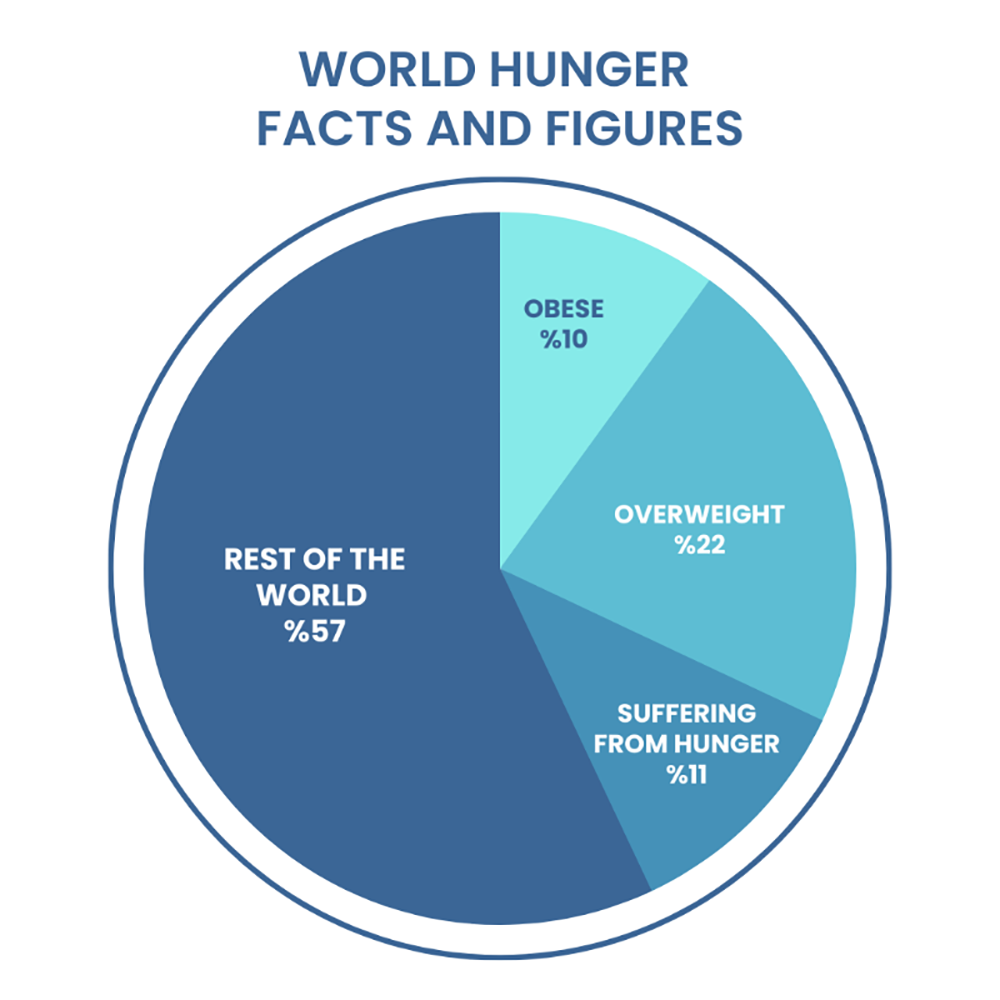Sustainable food refers to food production, distribution, and consumption practices that prioritize environmental health, social responsibility, and economic viability. It aims to ensure that the production of food is carried out in a way that minimizes negative impacts on the environment, supports local communities, and maintains the availability of resources for future generations.
Key principles of sustainable food include:
Environmental conservation: Sustainable food production aims to minimize the use of natural resources like water, soil, and energy. It reduces greenhouse gas emissions, promotes biodiversity, and avoids practices that contribute to deforestation or habitat destruction.
Local and seasonal: Emphasis is placed on consuming foods that are locally grown and in season. This reduces the carbon footprint associated with transportation and supports local economies.
Reduced food waste: Sustainable food practices strive to minimize food waste at all stages of the supply chain, from production to consumption. This includes better harvesting practices, improved storage methods, and conscious consumer choices.
Ethical animal farming: In the case of animal products, sustainable practices prioritize animal welfare and ethical treatment. This includes providing adequate space, proper nutrition, and avoiding the use of unnecessary antibiotics.
Support for local communities: Sustainable food systems help local communities by creating jobs, supporting local farmers, and fostering food security. This can also involve fair trade practices that ensure producers receive fair compensation for their efforts.
Healthy diets: Sustainable food encourages healthy eating habits, often promoting diets rich in fruits, vegetables, whole grains, and minimally processed foods. This not only benefits individual health but also reduces the strain on healthcare systems.
Cultural preservation: Sustainable food systems value and promote traditional and indigenous food knowledge and practices, preserving cultural diversity and heritage.
Social equity: A sustainable food system considers issues of social justice, ensuring that access to nutritious food is equitable and affordable for all members of society.
Transparency and accountability: Sustainable food practices often involve clear labeling and information about the origin and production methods of food products, allowing consumers to make informed choices.
Reduced chemical use: Organic farming and reduced use of synthetic chemicals are common components of sustainable agriculture, promoting soil health and reducing pollution.
In essence, sustainable food aims to balance the needs of the environment, society, and economy to create a more resilient and equitable food system for present and future generations.
The current status of the world's food and nutrition situation
On 15 November 2022, the world’s population is projected to reach 8 billion people, a milestone in human development.
Worldwide, more than 1 billion people worldwide are obese – 650 million adults, 340 million adolescents and 39 million children according to WHO. This number is still increasing. WHO estimates that by 2025, approximately 167 million people – adults and children – will become less healthy because they are overweight or obese.
 Source: Worldometer
Source: Worldometer
The UN's "Zero Hunger" Sustainable Development Goal aims to eradicate hunger, improve nutrition, and ensure food security by 2030. This involves addressing malnutrition, promoting sustainable agriculture, empowering farmers, reducing food waste, enhancing resilience, and fostering global partnerships. The goal envisions a world where all individuals have consistent access to nutritious food, supported by sustainable practices and collaborative efforts.
Some personal criticisms and comments on the subject
To sum it up, a portion of the global population, around 10%, is facing the challenges of hunger, while a comparable percentage is contending with obesity. Doesn't this situation raise concerns? Could this issue not be addressed through proficient planning? In an age where advancements in engineering and science have been remarkable, how is it that a solution to this problem, which undoubtedly affects our future, remains elusive?
Why isn't food an equally accessible resource for everyone? Doesn't everyone deserve the right to access good and clean food within their own geographical and situational constraints? This isn't a luxury; it's a fundamental necessity and an obligation. Yet, in less developed and developing countries, people often struggle to access the amount of food they need to survive. Perhaps the child at home who wants a hamburger can't just pull out money from their pocket and comfortably enjoy it. Or eating meat is a luxury for many families.
It's at this juncture that my dual passions for engineering and cooking drive me. Imagine if we could salvage 50% of the products lost in logistic operations through proper planning. Imagine if we could manage resource allocation effectively, possibly through legislative measures if needed. This would not only contribute to raising healthier generations but could also extend support to those who lack access to food. The possibilities are abundant, as long as we're willing to take action. But the essential question remains: Do we truly want to make it happen?















